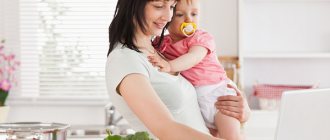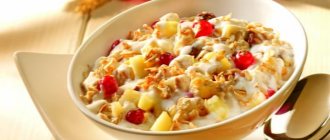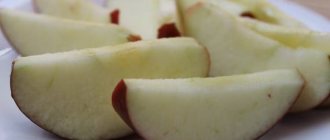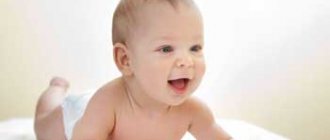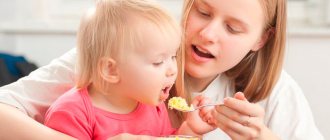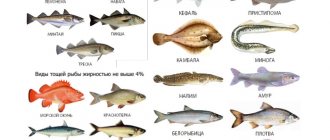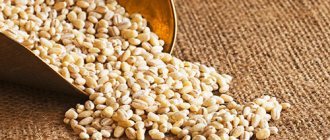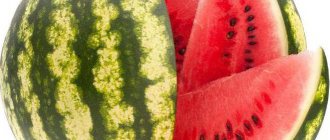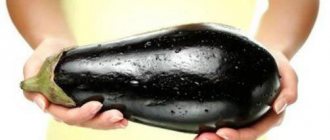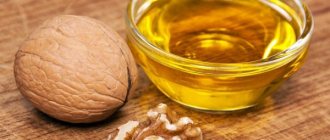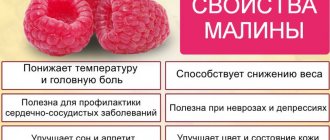When do you need a diet for diarrhea?
A change in stool consistency or increased frequency of bowel movements indicates diarrhea in a child. The baby is bothered by abdominal pain; in case of poisoning and infection, the temperature rises. Diarrhea is a common occurrence in children of primary preschool age. Causes of intestinal upset in a baby:
- Food intoxication;
- Teething;
- Pathologies of the gastrointestinal tract;
- Acute intestinal infections.
An acceptable reason for the appearance of liquid feces is climate change, an allergic reaction to foods. Diarrhea is often caused by taking medications.
Diarrhea often occurs with dysbacteriosis.
Treatment and diet are prescribed by the doctor. Doctors do not recommend refusing food unless the baby is vomiting. At the same time, you must follow a diet.
Restoring water-salt balance
Diarrhea causes a baby to lose a large amount of fluid, which must be replenished to avoid complications. There is no vomiting - drinking more drinks than usual will help make up for the loss. The doctor may recommend Regidron, Oralit. Pharmacy medications will help restore the acid-base balance.
The bag should be diluted in a liter of clean warm water. Give the baby the solution as prescribed by the doctor. The volume of the drug depends on the age of the child and the severity of the disease.
When a doctor's help is needed
Help for a child with diarrhea must be provided in any case, because a lot of fluid is lost by the body and dehydration may occur. First of all, it is necessary to call the attending physician at home, and if the situation continues to worsen, then an ambulance. Competent doctors and specialists will assess the baby’s condition and perform the necessary examination and palpation of internal organs.
ATTENTION!!! If the baby has not reached 2 years of age, at the first bowel disorder, you must call 103 and call an ambulance.
If the situation does not require it, the baby will stay at home and not go to the hospital. But even in this case, after prescribing all medications, you need to additionally help the baby cope with the disease. At home, the recommendations are as follows:
- Diet - during diarrhea, it is necessary to strictly exclude most dishes and products from the baby’s menu. Sweet, not very strong, warm tea, biscuits and crackers without additives, and rice porridge with water in the form of a “spread”, that is, completely boiled, are allowed;
- Combating dehydration – with severe diarrhea, the body loses not only fluid, but also valuable minerals. And the child’s body reacts very sensitively to such changes. In order to restore the lack of minerals and water-salt balance, you can purchase special medications at the pharmacy, for example, Regidron. It should be diluted according to the instructions and given a teaspoon or tablespoon depending on the age of the child every 15-20 minutes. The daily volume of liquid should be approximately 1-1.5 liters, it is this volume of the composition that will help restore salts in the body;
- Special remedies for diarrhea , those prescribed by the doctor. To better bind toxins in the body, they should be taken 3-4 times a day, 1-1.5 before meals.
IMPORTANT!!! For children under 1 year of age, dehydration can occur very quickly, so at the first sign you should immediately seek medical help. In stationary conditions, dehydration of the body can be restored much faster with droppers.
Principles of nutrition for diarrhea in children
The main task in case of intestinal upset is to replenish lost fluid. The attending physician has the right to prescribe special medications. In addition to medications, the child should be given liquid in the form of:
- Clean drinking water, without gas;
- Homemade compote, fruit juice, dried fruit juice with low sugar content;
- Vitamin drink made from raisins;
- Kiselya;
- Weak green tea, weakly brewed black tea.
After bowel movements, the baby is given liquid in a volume of 20 ml.
When creating a menu, it is important to take into account the age of the patient. Products should be easily digestible and well processed. It is better to feed a child with diarrhea in small portions, often.
Infant nutrition
In the past, doctors were of the opinion that newborn babies should not be fed if they had diarrhea. But later it turned out that lack of nutrition in babies under one year old leads to a lack of proteins, which affects the baby’s weight. In this case, recovery takes longer.
Breastfeeding should not be stopped for breastfeeding babies. It is necessary to reduce the time of eating, but not to increase the interval between feedings. Breast milk contains a lot of useful substances that help cope with diarrhea quickly.
Formula-fed babies in the first months of life should be fed every two hours, reducing the volume of the formula if diarrhea develops. It is recommended to use fermented milk mixture. Feed frequently, but little by little.
The diet of infants up to one year old who are familiar with complementary feeding includes the following foods and drinks:
- On the first day of the disorder, in addition to the mixture, offer fennel tea twice a day; on the third time, replace the tea with rice water.
- On the second day, give the child carrot puree.
- The symptoms have passed - on the third day, pureed vegetables are introduced.
Diarrhea in infants can be a reaction to the introduction of a new product into the diet. In this case, the product must be excluded or replaced.
Nutrition for children over one year old
In the first half of the day, it is better to limit the child’s food intake. The patient should be given sorbents and liquid. Then products allowed for intestinal disorders are gradually introduced.
A one-year-old baby is allowed to feed low-fat fermented milk products from the first days of the disorder. On the first day, it is better to reduce the amount of food as much as possible. After 2 days, include low-fat cottage cheese in your diet. On the first day, the baby needs to be fed more often, with smaller portions. If a child refuses food, he should not be forced to do so.
If you have loose stools that occur more than 10 times a day, it is better to reduce your food intake to two times. Portions and frequency of feedings should be gradually increased, monitoring the baby’s condition.
At first, the patient needs to eat soups with the addition of cereals, porridge with water from rice, buckwheat or oatmeal, without oil. Semolina in water with the addition of raisins and sugar is allowed. For children under two years old, grind porridge and soup in a blender until pureed.
Among flour products, white bread crackers and low-calorie crackers without additives are allowed. On the third day, give your child mashed banana and cottage cheese.
Baked apples with loose stools will saturate the child’s body with useful microelements and help restore the intestinal microflora.
Apple puree can be eaten three days after the onset of the disorder.
For meat dishes, white meat chicken or veal is allowed. Mom can steam the cutlets.
It is recommended to introduce milk and cereals made with whole milk into the diet a week after recovery. At the specified time, the baby is allowed fresh vegetables and fruits.
Nutrition for children with intestinal infection
An intestinal infection is accompanied by nausea, fever, and abdominal pain. The child looks weak.
In case of illness, a special diet is required. Lack of adequate nutrition in ACI contributes to prolonged diarrhea and weight loss.
At the first stage, you need to reduce the amount of food or stop taking it temporarily, since the infection is often accompanied by profuse vomiting. The baby needs to be given plenty of water. If the child has an appetite, you need to feed him food in the form of puree, boiled or steamed.
The doctor will prescribe medications to help the patient’s body cope with the infection.
Feeding a baby in case of poisoning
Poisoning weakens a child's body. The pancreas and liver stop functioning properly due to severe food intoxication. A balanced, proper diet after poisoning helps the gastrointestinal tract to recover. The diet is aimed at the complete elimination of toxins.
The disease occurred in an infant - the volume of milk needs to be reduced by 3 times. It is allowed to give the baby warm boiled water.
Older children are advised to eat a balanced diet. The volumes offered are small. Flour, sweet, and spicy foods are excluded. The amount of carbohydrates is reduced.
Grinding food promotes its better absorption. If the child is not used to chewing food thoroughly, it is better to grind the food using a blender or rubbing it through a sieve.
It is forbidden to force a child to eat food, but a child should not be limited in his food intake if he has expressed a desire to have a snack. It is important to maintain a 2-hour interval between meals and the temperature of the food.
Sample menu
Nutrition in the first two days has preferential restrictions. Menu for the first day of illness in approximate form:
- Breakfast: unsweetened, weak tea, low-fat cottage cheese, white bread croutons.
- Second breakfast: baked apple.
- Lunch: white poultry broth with cereal, steamed chicken or turkey meatballs. Drinks include jelly or compote.
- Afternoon snack: stewed apple, slightly concentrated fruit drink.
- Dinner: buckwheat, weak tea.
On the second day, the menu can be slightly diversified:
- Breakfast can consist of porridge with water. Semolina and oatmeal without oil are recommended. Boiled eggs are allowed.
- Second breakfast: banana puree.
- Lunch: baked chicken breast, boiled potatoes, tea.
- Afternoon snack: compote or herbal decoction.
- Dinner: cutlets from low-fat fish, stewed vegetables, compote.
With proper treatment and diet, the baby’s condition improves on the third day. Menu for the third day of illness:
- Breakfast: rice porridge with water, soft-boiled egg, green tea.
- Second breakfast: blueberry jelly, unsweetened cracker.
- Lunch: rice, boiled chicken breast, compote, sushi.
- Afternoon snack: baked pear.
- Dinner: boiled low-fat fish, mineral water.
What to do if your child has diarrhea
In early childhood, diarrhea in a child can be caused by completely different circumstances and reasons. They can be quite harmless or cause serious concern. Therefore, parents, as well as grandparents, need to know how to help the baby and how to give him first aid before the ambulance arrives, which must be called.
Rotavirus infection in children: symptoms
What can a child eat with diarrhea: tips for parents
In addition to medications, the child can be helped in other ways, especially if the diarrhea has nothing to do with infectious diseases, but is caused, for example, by psychological reasons. Let's take a closer look at them. What should a child eat if he has diarrhea?
- You need to boil 2-3 tablespoons of rice cereal in 500 ml of water. Strain the resulting broth into a clean saucepan and cool until warm. Give the baby warm 1-2 tablespoons 3-4 times a day until the age of 2, up to 5-6 years you can increase the dose to a quarter of a standard glass, for older children - up to half a glass;
- From the age of 5 you can prepare a decoction of 30-35 g. dried blueberries and give it a quarter glass 3-4 times a day;
- Chamomile tea can also alleviate the condition of a small patient. It will be enough to pour 1 teaspoon of crushed raw materials into a glass of water and evaporate in a water bath for a quarter of an hour. You can offer the drink during the day, when you want to drink it, slightly diluted with boiled water. You can drink a maximum of a glass of decoction per day.
Prohibited Products
In case of intestinal disorder, the following are excluded from the patient’s diet:
- Products of plant origin that have not undergone heat treatment;
- Nuts;
- Dairy products, milk;
- Fresh;
- Legumes;
- Any mushrooms;
- Confectionery;
- Drinks with gases.
Porridges made from pearl barley, millet, and any milk porridges are prohibited.
Noodles are allowed from pasta.
During treatment, it is necessary to limit sugar intake. You should not eat fatty, spicy foods. Pickled and salty foods can cause stomach upset. Products should be excluded from the diet.
It is not recommended to give children too cold or hot food.
After diarrhea, a gentle diet should be followed for another week until the body is completely restored.
Prevention
Parents should organize proper nutrition after the disease disappears so that a relapse does not occur. It is not recommended to abruptly stop the diet after the symptoms disappear, since the intestinal microflora is not completely restored. You can return to your usual menu a week after the symptoms disappear. It is recommended to avoid products with preservatives and dyes.
Prevention measures include maintaining good personal hygiene. Adults should ensure that the child washes his hands with soap after visiting the street and the toilet, and after playing with animals. It is necessary to explain to the child that drinking unboiled water and unwashed fruits can lead to illness. Too fatty foods and carbonated drinks are harmful to a healthy person; you should not overuse unhealthy foods.
A properly composed menu for intestinal disorders is the basis of therapy. It is required to follow the doctor’s recommendations regarding the treatment and nutrition of the baby. By following the instructions, the parent will ensure that the child recovers and recovers as quickly as possible.
How much should you drink
As mentioned above, with diarrhea a lot of fluid is lost and dehydration can occur. Therefore, during the day, in addition to the main drink in the form of still mineral water, jelly and strong tea, you need to drink 1-1.5 liters in small portions of a special solution, which can be purchased at the pharmacy in powder form.
So, the sooner the correct balance of fluid in the body is restored, the faster the patient will experience relief and recovery. Therefore, it is worth paying attention to such drinks as:
- Clean boiled water at room temperature;
- Dried fruit compote without adding granulated sugar and honey;
- Kissel and blueberry compote;
- Mineral water with preliminary release of gas bubbles;
- Not very strong tea with a spoon of granulated sugar;
- Decoction and infusion of bird cherry fruits (fresh, dry or frozen).
Healthy dried fruit compote
A young child will need a liter of fluid per day, while an adult needs 2-2.5 liters. If you go to the toilet quite often, you should increase the amount of fluid you drink. You can also use herbal infusions of mint, chamomile or St. John's wort. IN
All other drinks in the form of cocoa or sweet soda, strong coffee, etc. are strictly prohibited, as they can provoke an exacerbation of the disease.
